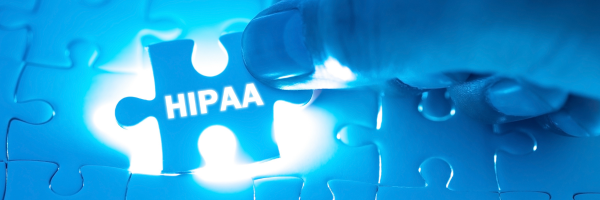In today's increasingly digital world, it's easy to assume that check fraud is a thing of the past....
Keep Your Guard Up Against Old-School Security Hacks
In today's increasingly digital world, it's easy to assume that check fraud is a thing of the past. Unfortunately, one of the oldest financial scams—check washing—is making a dangerous comeback, alongside check cooking. For small and midsize businesses, this growing threat deserves urgent attention.
What is Check Washing?
Check washing is a type of fraud where criminals steal legitimate checks (often from unsecured mail), use chemicals to remove the original ink, and rewrite them with higher amounts or new recipients. These checks are then cashed or deposited—leaving the business with lost funds, an overdue or unpaid bill, and a frustrating process to recoup the money, if possible. Check cooking is similar but involves the digital manipulation of the image of a stolen check to "manufacture" multiple checks for that same amount.
Why is this still a threat? Bad actors take advantage of regulations that demand financial institutions meet certain timeframes for making funds accessible to those depositing and cashing checks. Too often, the money must be available so quickly that verification processes lag behind, leaving a window of opportunity for those looking to commit check fraud.
Why It Matters to Your Business
Even in the era of digital payments, many smaller businesses still rely on paper checks for vendor payments, rent, and payroll. That makes them especially vulnerable. Because check washing and check cooking is hard to detect until it's too late, the financial and reputational risks can be significant. Not only do these frauds lead to lost funds that can take significant time to recoup, they can damage the financial standing of organizations.
At Exigent Technologies, we believe that protecting your operations goes beyond firewalls and passwords. It's about securing all aspects of your business, including how money moves in and out. Here are a few easy tips to help protect your organization:
Simple Ways to Protect Against Check and Banking Fraud
Use a Locked, Secure Mailbox
Avoid placing outgoing mail in public mailboxes. Use USPS blue boxes only before the last pickup of the day—or better yet, hand it to a postal worker.
Switch to Digital Payments When Possible
A shift to ACH payments lowers the fraud risk since there is no physical mail to intercept. Additionally, faster reconciliation improves cash flow predictability, and electronic payments offer more control and traceability.
Use Fraud-Resistant Checks
Invest in checks with security features such as watermarks, heat-sensitive ink, or holograms. Avoid using envelopes with windows that can reveal a check inside.
Review Bank Activity Daily
Early detection is key. Set up alerts that highlight when a check clears and monitor closely for unfamiliar payees or amounts. Remind your team to review check images closely—it is easy to fall into the pattern of only looking at the check totals.
Use Positive Pay with Your Bank
This fraud prevention service allows your business to pre-authorize issued check details with your bank. That institution then rejects any item not matching your file. This helps to stop washed or counterfeit checks before they clear—closing that tight window of opportunity that bad actors rely on.
Protect your banking data internally
Many SMBs allow multiple employees to access banking details. Limit that knowledge, and be sure to scrub all communications of account/routing details. Banking information is as valuable as passwords to your IT environment, and should be guared just as carefully.
Review Internal Payment Approval Process
This step helps protect against check washing as well as common social engineered threats such as wire fraud. Your business should require two approvals on larger checks or unusual payees. You should also establish conservative thresholds for any type of electronic payment. Again, work with your financial institution to understand all the options for placing guardrails on your bank accounts to limit activity. While those steps may slow accounting processes down slightly, they are worth the protection and peace of mind.
Too often, protecting your business against the many and various security attacks in today's world can be exhausting. But often a few simple steps, and simple awareness—seriously, who even thinks about check washing?—can greatly improve your security posture and better protect your business.


